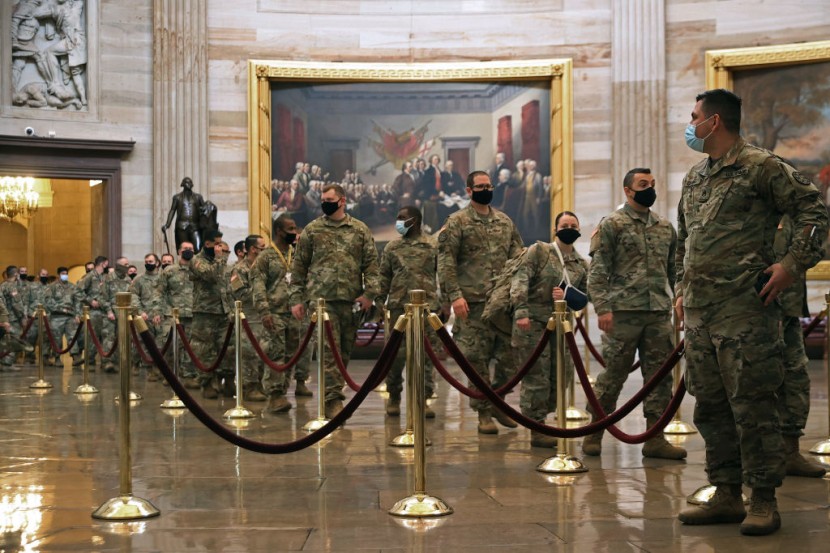
National Guard troops were due to withdraw and turn over security of the US Capitol to the Capitol Police nearly five months after being sent there to help with the January 6 insurgency. According to a source familiar with the plan, National Guard troops were scheduled to leave on Monday after their assignment ended on Sunday.
Over 2,000 members of the National Guard set to leave the US Capitol
The person who informed the Associated Press about the plan asked to remain anonymous as he had no authority to speak about the withdrawal. Earlier this week, the Pentagon revealed that there was no request to extend the stay of the 2,149 National Guard members as added security for Capitol Hill.
The expected departure came as Democrats and Republicans fought over how to finance Capitol defenses and establish an official democratic commission to investigate the attempted insurrection of former President Donald Trump's supporters to block Congress from certifying the results of the 2020 Presidential Election.
Despite several deaths, dozens of police officers' injuries, hundreds of arrests, building damages, and yelled attacks against lawmakers from several of those who attacked the building, some Republican lawmakers have started to downplay the incident. A lot of the brutality then was captured on video.
The Capitol Police will now be left to guard the Capitol. Still, the complex will stay restricted to the general public due to the pressure on the police department, retired Lt. Gen. Russel Honore, who led a security assessment in the aftermath of the rioting, told CBS' "Face the Nation." Honore said, "God bless the National Guard. "They have done significant work."
A $1.9 billion measure to fortify the Capitol was adopted by the House on Thursday by a single vote overwhelmingly along party lines. The establishment of an investigating committee was endorsed the next day by the House with 35 Republican votes. Both bills face an unpredictable future in the Senate, which is evenly divided.
Minority Leader Mitch McConnell has stated his opposition to the commission plan, which, under Senate rules, will require substantial Republican support to proceed. Republicans argue that the commission will become a partisan weapon as the midterm elections near, although the plan calls for the commission's work to be completed by the end of the year.
National Guard troops' stay in DC marred with controversies
After the deadly insurgency, about 26,000 National Guard troops were initially dispatched to DC. They were only supposed to stay until March 12, but at the behest of the US Capitol Police, Defense Secretary Lloyd Austin extended the date for more than 2,000 troops.
Pentagon officials said at the time that the decision was made to "strengthen and support the Capitol Police and their capacities, which might not be at the stage where they ought to be considering the fact that we're in a new environment in this country," The Sun reported.
The initial deployment cost taxpayers about $500 million, but no estimates have been given for the average cost of the deployment over the last 137 days.
Before Biden's inauguration, the National Guard's four-month stay in DC was marred by turmoil, with images of troops having to sleep on the damp marble floors of the Capitol. In late January, some 150 guardsmen tested positive for COVID-19, and more than a dozen were sickened by undercooked beef. It was confirmed that 50 National Guard members needed to be treated for gastrointestinal problems, with six requiring outpatient medical care.
@YouTube








